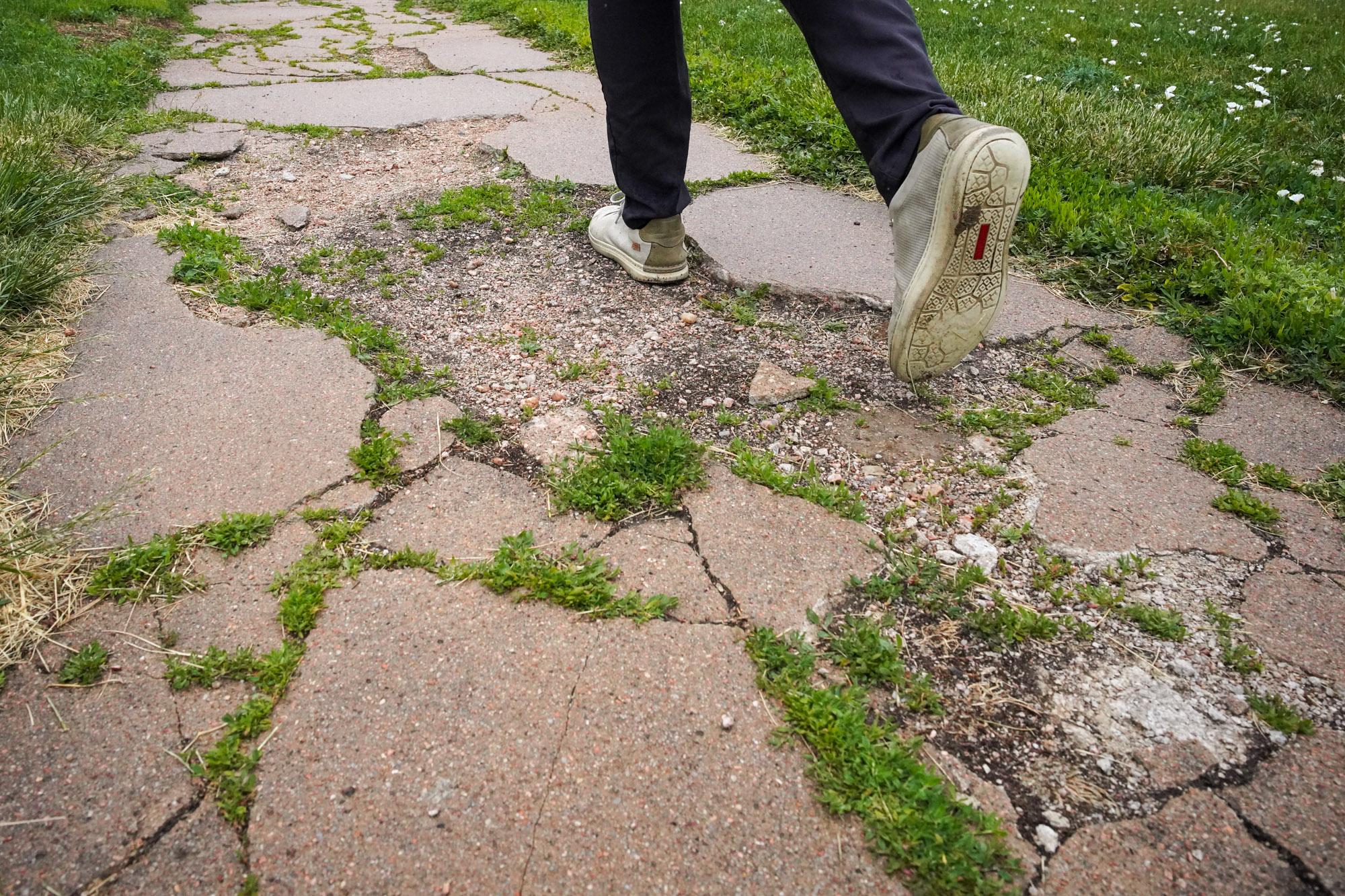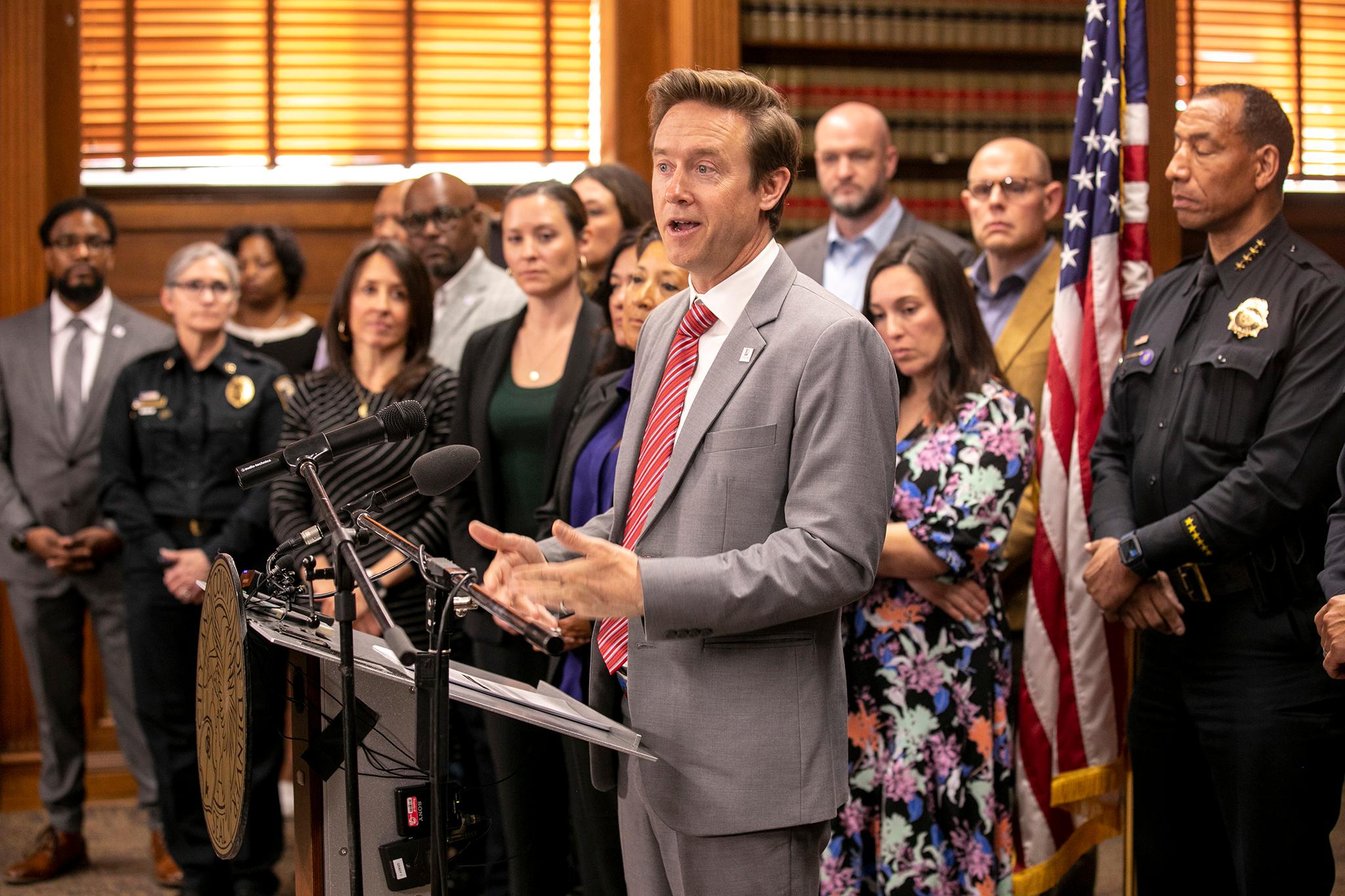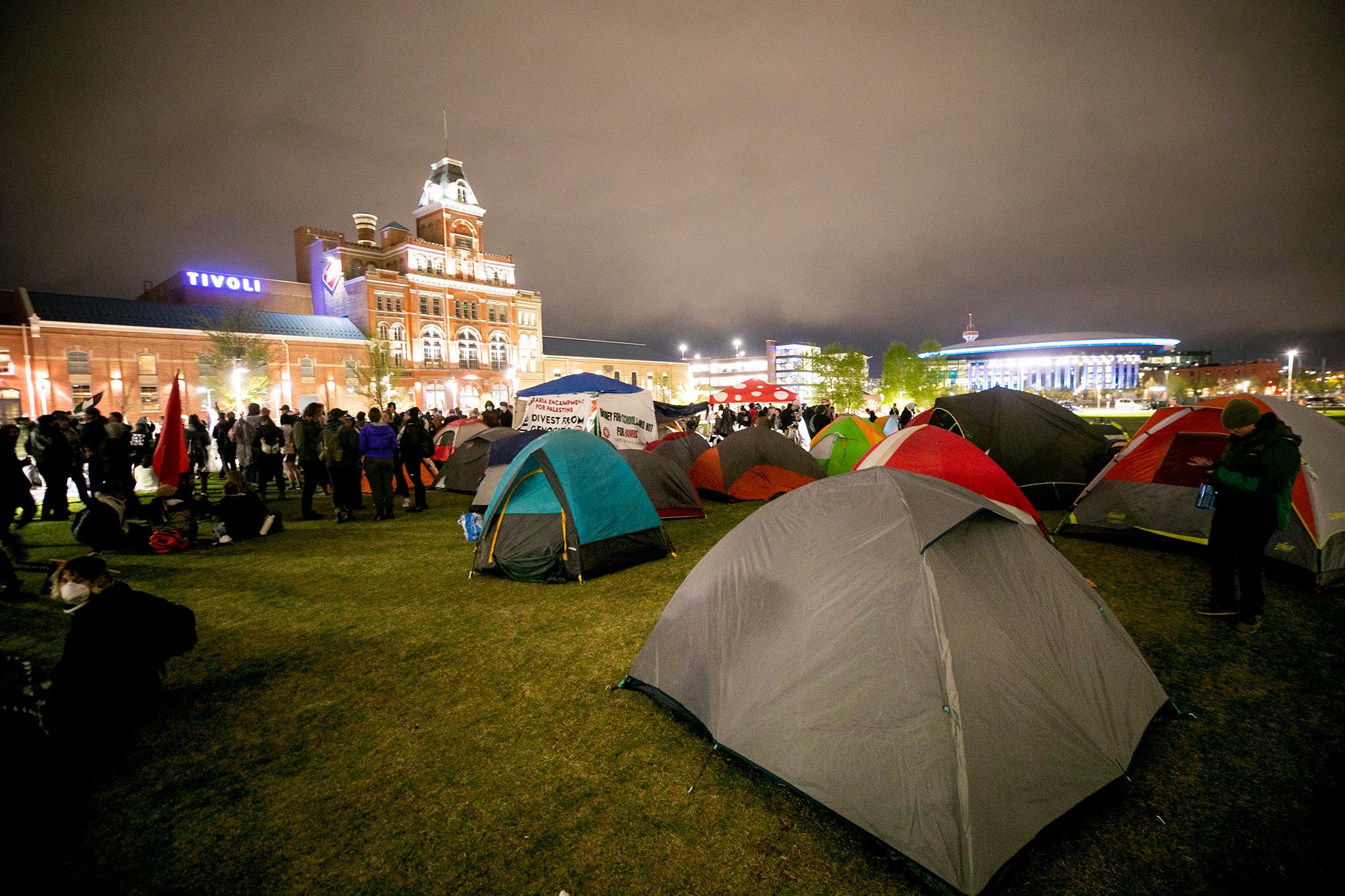More than a year has passed since Denver voters decided to charge property owners a fee to pay for much-needed sidewalk improvements. But if you've looked around, you'll notice the sidewalks aren't looking better, and you might be wondering what's going on with that thing you voted for or against.
It turns out, quite a lot -- of process.
Denver's Department of Transportation and Infrastructure formed a committee to "review and refine Sidewalk Ordinance 307," according to a statement from the agency. The group has been meeting twice a month since August to hammer out the finer details of the ordinance.
Now, the committee is proposing three big changes to the ordinance to address community concerns over high fee assessments and how they might affect lower-income homeowners, how the measure conforms to the Taxpayer's Bill of Rights (TABOR), and to make sure DOTI can implement a working program to build, fix and repair sidewalks throughout the city.
"I'm proud of the hard work the Committee has done to develop recommendations that refine the sidewalk ordinance and details of implementation and that honor the will of the voters," said Jill Locantore, Committee Chair and Executive Director of the Denver Streets Partnership.
Here's what's proposed.
The first change is massive. The original ordinance assessed fees based on the linear foot of property frontage on both residential and commercial property owners. That frustrated residents who lived on corner lots who were disproportionately charged.
The proposed change, only affecting homeowners, not commercial-property owners, would instead create a standard annual fee per resident that would vary based on what sort of home they lived in. Single-family home dwellers and people living in a multifamily home in a single residence that takes up an entire parcel would pay $148.64 per unit, while people living in multifamily buildings with two or more units on a parcel would pay just $27.83 per unit.
"For all other properties, the Committee recommends keeping the sidewalk fee per linear foot of property frontage," the city noted online.
The second change to the ordinance would be that in the original text people living in neighborhoods identified as under-resourced by the city's Neighborhood Equity and Stabilization (NEST) would be eligible for a 20% discount. That would be scrapped.
Instead, people in income-restricted properties, where at least 25% of the residential units are available only to low-income households, would receive an automatic 20% discount. Property owners who apply and income qualify could receive additional discounts based on income. The way those discounts would be dolled out would be similar to Denver Solid Waste's Recycling and Trash Service Rebate.
The timeline would also be hedged. The original ordinance states the work would need to be completed within nine years.
The proposed tweak would state the work needs to be complete "within nine years of the effective date of this section, or as soon thereafter as determined feasible by the manager of transportation and infrastructure."
City analysis suggested the work could take upwards of 30 years.
The ordinance would also need to specify that the initial capital investment plan should "prioritize the repair or reconstruction of all existing sidewalks that are in severe disrepair, that represent a safety hazard, or which do not minimally comply with legally mandated accessibility standards."
Love it? Hate it?
The city is asking residents to give their feedback about the changes through this survey. Responses are due Tuesday, Feb. 27.
"After community members weigh in over the coming weeks, the Committee encourages Denver City Council to adopt the final recommended changes swiftly to avoid further delays in the implementation of the program." Locantore said.
This story has been corrected to clarify that people living in a multi-family home in a unit that takes up an entire parcel will pay the same rate as people who live in a single-family home. Also, eligibility for discounts for people living in NEST neighborhoods will be replaced with different criteria.












